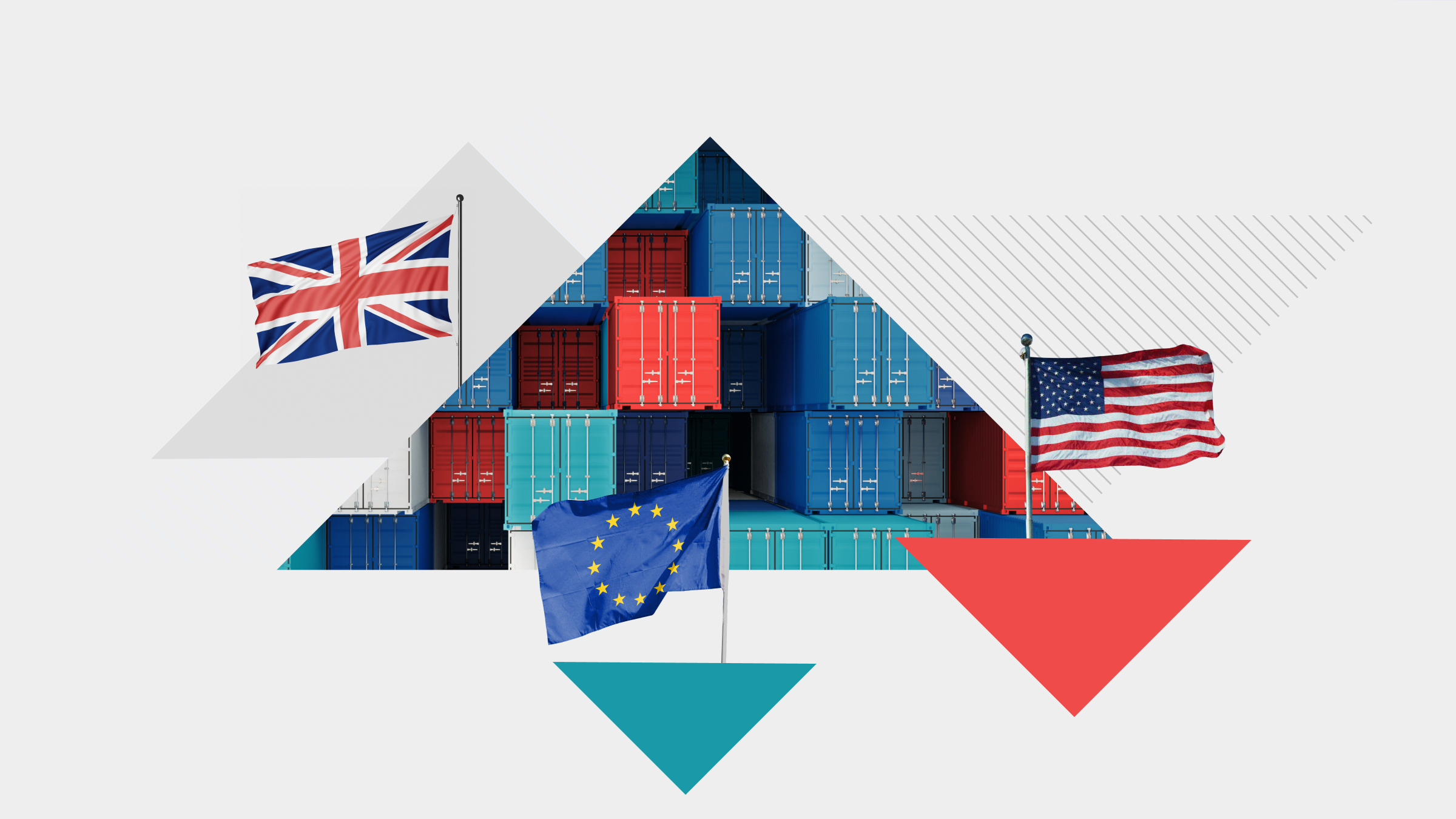Amerikkalaisilla yhtiöillä on miljardeja dollareita ulkomaisilla pankkitileillä, koska voittojen kotiuttaminen Yhdysvaltoihin pakottaisi ne maksamaan voitoista verot. EBay päätti hiljattain maksaa verot saadakseen varat käyttöönsä. Morningstarin Matt Coffina muistuttaa, että muillakin yhtiöillä on piilevä verovelka, joka usein jää laskuista pois kun yhtiöiden arvostuskertoimia vertaillaan. Hän käy myös läpi vaihtoehtoisia tapoja, joilla amerikkalaisyhtiöt voivat verohaasteitaan ratkoa.
Jeremy Glaser: For Morningstar, I'm Jeremy Glaser. The issue of companies with large cash holdings overseas and what they can do with them has been building over the last few years. Some companies have started to make moves to bring some of that cash back to the United States.
I'm here with Matt Coffina--he’s editor of the Morningstar StockInvestor newsletter--to see what that could mean for earnings and for the companies' investors.
Matt, thanks for joining me today.
Matt Coffina: Thanks for having me, Jeremy.
Glaser: EBay recently announced that they were going to be taking a large charge to bring some money back to the United States. Can you talk to us a little bit about what was driving this decision and if you think it could be the start of a trend for these tech firms?
Coffina: Multinational companies don't have to reserve for U.S. taxes as long as they plan to keep their foreign earnings abroad indefinitely to reinvest or even just to sit in bank accounts abroad.
EBay took a courageous position here in declaring that they were going to just bite the bullet and pay a big tax bill in order to be able to repatriate some of these earnings. In order to bring back $6 billion of foreign cash, they're going to have to pay $3 billion in taxes, so $9 billion of foreign earnings being repatriated, and that's a pretty steep tax hit.
I think a lot of companies have avoided this so far because it indicates that, first of all, a lot of these companies are in a way overstating their earnings. This whole time they've only been reserving 15%, 20% kind of tax rates, but if they ever actually want to access that cash, they might very well have to pay 30%, 35% tax rates in order to bring that cash home to the U.S.
It also means that a lot of companies have overstated their cash balances, so investors frequently just look at cash on the balance sheet, subtract it directly from the stock price to calculate a price/earnings multiple, for example, excluding cash. But the reality is that a lot of that cash isn't necessarily accessible. They can't use that cash to pay dividends, they can't use it for share repurchases as long as it's overseas, and to reserve for those taxes would mean that the cash balances would be a lot lower than they are.
I don't really think eBay is starting a trend here. I think a lot of companies are going to stick with the status quo and just perpetuate this fantasy of low tax rates and high cash balances. We've seen other companies find other kinds of workarounds like borrowing in the U.S. against their foreign cash balances instead of bringing that cash back. That's really only a temporary fix; it only delays the inevitable of having to pay these taxes. The big exception would be if we have either a big tax holiday one day that would allow a lot of these companies to bring back cash, and a lot of people have advocated for that, or more significant structural changes in the U.S. tax code to make our tax rate a little more competitive with the rest of the world.
I'm not really holding my breath for either of those. I think with the divided Congress and the current administration, it's very hard to see, just given the environment in Washington, any kind of serious tax reform anytime soon, in which case I think most companies are probably going to stick with the status quo.
Glaser: You mentioned there were a few other strategies, though, to access some of this cash, for many companies their earnings abroad are quite significant. Could you walk through some of those strategies and which ones you think actually are or could be successful and which ones maybe not so much?
Coffina: First of all, I think it's important to keep in mind that keeping those funds overseas is not cost-free: There is a significant opportunity cost to not being able to access that cash in the short term.
If you figure a company has, say, a 10% cost of equity, which we think is pretty typical for a lot of companies, and if you keep cash overseas for five years without being able to access it, that cash is only worth in present value terms about $0.60 on the $1, so you lose about 40% of the value of the cash, which would significantly outweigh the tax hit that you take, like eBay is taking in the short term. So there is a huge opportunity cost to keeping those funds overseas. And it's not like that tax hit is going away. As I said, unless we see a major change in tax law, sooner or later you're going to have to pay taxes on that money if you want to bring it back to the U.S.
So, if that's your perspective and you're not expecting some big tax holiday in the near future, I think it does make more sense just to bite the bullet now and pay the taxes. The alternative strategies that are out there would be, for example, Apple has been borrowing in the U.S. against its foreign cash balances and using the borrowed funds to repurchase shares. But that just means you're paying interest expense in the meantime while earning basically no interest income on your foreign cash balances, and again, the tax headache, the tax hit is not going away. It's still out there in the future.
A more permanent solution would be trying a tax inversion. This is what Pfizer is trying to do with its acquisition of AstraZeneca, something we talked about last week. Pfizer is hoping to change its domicile to the United Kingdom where it would face a significantly lower tax rate, and also be able to use some of its foreign cash in the future without having to repatriate it to the U.S. because it would no longer be a U.S. company. And that window is open, and again, as long as Washington remains gridlocked, it probably will stay open. You need some kind of legislation to prevent companies from doing this. In which case, that kind of transaction could unfortunately make a lot of sense for a company to move outside of the U.S. to a lower tax jurisdiction. It does create a bit of a cost advantage or a competitive cost advantage to be located in a lower tax jurisdiction.
That said, it's not really an option for a lot of companies, either because they're too large or because the negative publicity would be too much to handle. It's hard to see an American icon like a Coca-Cola or Johnson & Johnson permanently relocating to Ireland or even the Bahamas or something like that to save on taxes. But that said, in the meantime, that gives advantages to companies that are based in lower tax jurisdictions and are able to acquire U.S.-based companies and significantly lower their tax burdens.
Glaser: If you have this situation where non-U.S. firms might be at somewhat of a structural cost advantage and then you have some issues with this cash overseas maybe not being properly accounted for or fully accounted for using some standard metrics, when you're thinking about where to invest or thinking about competitive advantage, how does that play into it? Are you more likely to favor firms outside of the U.S. then?
Coffina: Yeah, I would say it's not a serious investment consideration for me. I think a 10% lower tax rate is an advantage, but I don't think it's a reason to buy a company. And if anything, sometimes investing in the higher-tax companies might be the better strategy because companies are usually valued based on their current earnings or their perceived current earnings power, and if you have a multinational company, an example like MasterCard comes to mind, where they're paying, I think, 30% tax rates. But they're generating a lot of earnings overseas, and over time I think they would have an opportunity to increasingly manage that tax rate down.
On the other hand, if you have companies that are already paying very low taxes, you always have the risk that the IRS is going to crack down on that in some way and that they're going to find a way to tax those earnings more heavily.
So I wouldn't say that I would specifically go out and look for companies with lower tax rates. If anything, I would look for companies that are paying higher tax rates than they probably need to and, in all probability, management will find a way to manage that tax rate down over time, which investors will appreciate.
Glaser: So most people shouldn't be too concerned about a company not doing everything they can to maybe lower the tax rate right now?
Coffina: I think there are a lot of challenges, both public perception and legal, the way that the corporation is structured, where the various entities are, where the earnings are flowing through.
I think everyone is trying to get their tax rate as low as possible within reason, but then also keeping in mind there can be trade-offs. So, eBay being a great example of a company that was willing to pay more taxes than it might have otherwise needed to because it realizes there's a huge opportunity cost to keeping that cash overseas indefinitely and it thinks it has better opportunities in the U.S.
I would just look for a company that has shareholders' best interests in mind and ideally is going to be managing down the tax rate over time, but not to excess. I don't think that that needs to be your number-one priority, getting the tax rate as low as possible, because there can be trade-offs in a different way as well, which is public perception going against you, maybe attracting negative regulatory attention, or maybe down the road some kind of backlash from regulators.
Glaser: Matt, this sounds like an issue that's not going away anytime soon. Thanks for your thoughts on it today.
Coffina: Thanks for having me, Jeremy.
Glaser: For Morningstar, I'm Jeremy Glaser. Thanks for watching.






















